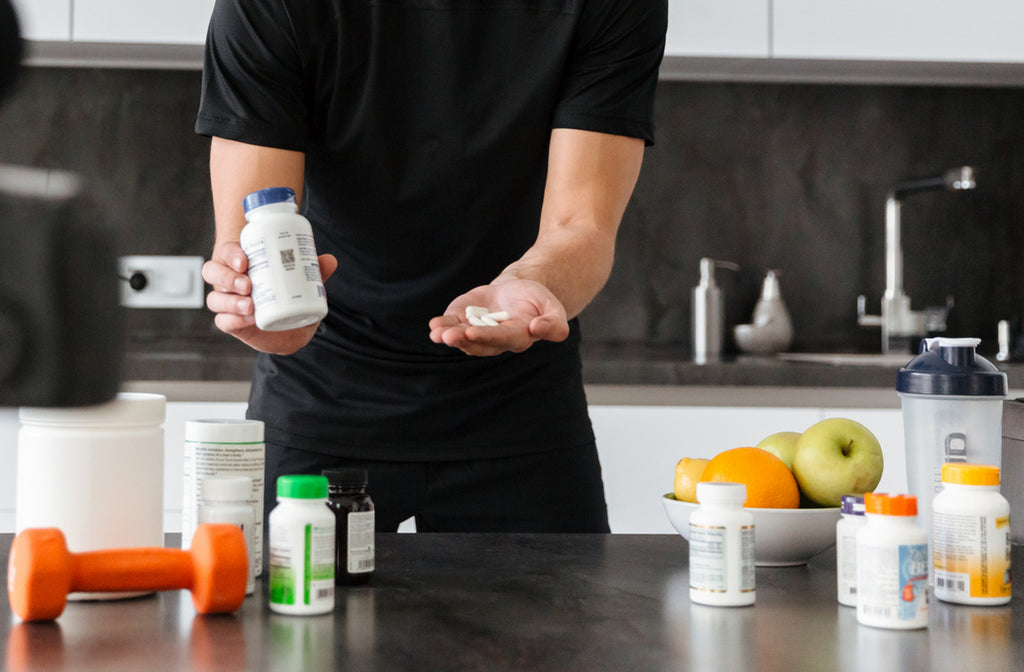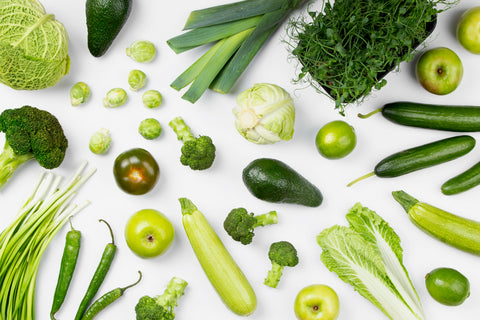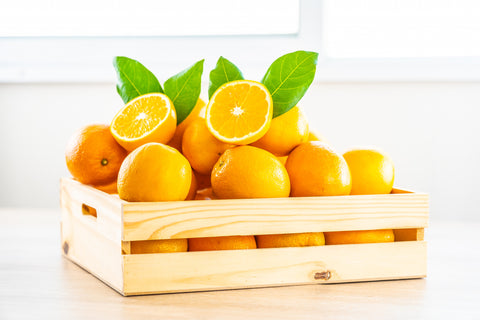Glutathione is regarded as the king of all antioxidants because it has amazing and unique ability to recycle other antioxidants!
We know that free radicals (damaged atoms) contribute to all kinds of health problems including cancer, fatigue, weak immune system, ageing, neurological problems, poor memory, chronic diseases, etc. Therefore, by neutralising them so effectively glutathione is the most important molecule we need in order to be healthy, to feel good, get rid of fatigue, have strong immune system and prevent diseases.

Glutathione also protects our body against most dangerous heavy metals such as lead and mercury. High concentration of glutathione in our body is one f the most effective factors to slow down ageing process, prevent cancer, heart disease, dementia, or various health problems associated with weak immunity. It is also very beneficial in dealing with neurological conditions such as MS, Parkinson’s, autism or Alzheimer’s disease.
Majority of people today are deficient in glutathione because of the following factors:
Chronic stress, anxiety and depression, infections, environmental toxins, consuming refined foods, diet deficient in raw vegetables, fresh fruits and other foods which may increase glutathione levels in our body, consuming genetically modified foods and products high in refined sugar or containing artificial sweeteners, the use medication (such as antibiotics), stimulants, chemotherapy and radiotherapy, injuries, etc.
Glutathione is also regarded as the best healthy skin promoting and skin lightening supplement according to the black and dark-skinned women who attempt to beautify and lighten theirs skin. Those who use supplements increasing glutathione levels in the body claim that the skin is not only lighter but also smoother, younger and stronger. There is also a study which can confirm it as it found positive results after only one month in a small group of participants, making many dark-skinned women very optimistic and hoping that over extended time of using this antioxidant can whiten the skin. Glutathione may help to whiten the skin because it reduces free radicals in the body that activate enzyme tyrosinase which causes an increase in melanin (skin pigment) production. By reducing the release of skin pigment glutathione slowly lightens the skin. However, to see the results patience is required as it may take 4 to 6 months to notice the difference in the form of a smoother and lighter skin. More on skin lightening >
Ways To Boost Glutathione
Although our body produces its own glutathione yet poor diet, stress, pollution, toxins, medications, trauma, ageing, infections, radiation and other factors deplete it. As a result we become susceptible to unrestrained cell damage and disintegration from oxidative stress (caused by free radicals), infections, low energy levels, faster ageing process or cancer. In addition, our liver gets overloaded with toxins, damaged and become unable to do its job.
You probably think now that everything you need is just start taking glutathione in the form of a supplement. Unfortunately, it doesn't seem to be an effective way to achieve the goal because it is a protein and since our body digests proteins we probably wouldn’t get the benefits if we take glutathione in the form of a tablet or capsule. Another possible problem with glutathione supplementation is that by providing the body with ready glutathione supplements, its natural way of production may get disrupted since there is another source involved and there are already adequate supplies available. In this way liver may cease generating this most important antioxidant and even develop a form of dependency on supplements. Although it hasn't been proved to be a scientific fact yet this argument seems to be reasonable.
Foods & Supplements To Increase Glutathione
The good news is that we can greatly boost glutathione levels in our body and stimulate liver to increase glutathione production by taking other amino-acids, antioxidants, vitamins, herbs and foods that are known to have such effect. In this way we provide our liver with everything it needs to make more of this most important of all antioxidants. All the most important foods, factors and supplements are listed below. The more of them you include the better results you can expect:
- FOODS which may help to increase glutathione: Asparagus, Okra, Garlic, Onions, Rice bran, Mangosteen, Chlorella, fresh Dandelion leaves and fresh Nettle leaves, Chickpeas (Garbanzo beans),? Broccoli, Brussel Sprouts, Cabbage, Cauliflower, Maca, Turmeric, Lentils, Parsley leaves, Collard, Greens, Kale, Brazil nuts, Mustard greens, Radish, Turnip, Watercress, Bok Choy, Rosemary, Berries, Avocado, Peaches, and watermelon, Beets, Peanuts, etc. Keep in mind that cooking (heating) reduces the glutathione content of vegetables by 30-60%! Canning is even worse as it almost completely destroys glutathione!
- Glutathione is a combination of three simple amino acids – cysteine, glycine and glutamine. So if you know this you can draw a simple conclusion that we need to make sure our body always has enough of these three ingredients to make glutathione. Supplements containing these three amino acids might be a good idea too.
- Alpha Lipoic Acid is the most important after glutathione in our cells and is involved in energy production, blood sugar control, brain health and detoxification. The body usually makes it, but given all the stresses we are under as well as many other factors, we are always deficient. As I've mentioned before, glutathione supplementation has not been proven to be an effective way due to the poor absorption and because it has low ability to accumulate in our brain. Fortunately, lipoic acid has been shown excellent ability to increase intracellular glutathione levels by about 70%!!! In addition it can also regenerate and increase other common antioxidants (such as vitamins C or E) in our body. Another good news is that lipoic acid is able to chelate iron (which tends to be catalysed into even more harmful activity by the antibiotic gentamicin). Unfortunately, iron works as a pro-oxidant, which means it can significantly increase the harmful free-radical activity. Alpha lipoic acid, however, has the ability to disarm the harmful iron!
- L-Cysteine and N-acetyl-cysteine (NAC) are both known as powerful antioxidants that also help increase glutathione. There are reasons to believe L-cysteine is a better form of supplementation than NAC as it has to be converted in our body to NAC. If we keep on using NAC it may again make our liver start depending on these supplies. L-cysteine, however, does not lead to this dependency as live has to convert it to NAC. This excellent antioxidant has been used for years to help treat asthma and lung disease and to treat people with life-threatening liver failure from Tylenol overdose. In fact, sometimes it is even used to prevent kidney damage from dyes used during x-ray studies.
You may also take sublingual Methylcobalamin (B12), folate and vitamins B6(all three regarded as methylation nutrients) as they are recognised as the most critical factors to keep the body producing glutathione. If you eat green leafy vegetables on a regular basis you don’t actually need folate supplements but if you avoid consuming them regularly, you may need supplements with methylfolate or at least folic acid. Instead of folic acid it is better to take folate in its active form of 5 methyltetrahydrofolate. Vitamin B6 is also better in the active P5P form. Vitamin B12, which is the most important glutathione booster among these three vitamins, must be in the form of sublingual methylcobalamin (2000 mcg under the tongue every day only after breakfast).
- It was previously believed that the powerful anti-fatigue effect of Moringa oleifera is the result of especially its powerful antioxidants as well as very high chlorophyll and vitamin/mineral content. But in 2015 it was demonstrated that this benefit of Moringa is also due to its ability to improve body energy stores by increasing levels and activity of other antioxidants such as glutathione. For instance, in 2008 study Moringa oleifera prevented acetaminophen induced liver injury by restoring levels of glutathione, regarded as the most important of all antioxidants.
- According to the 2007 medical research article “Resveratrol increases glutamate uptake and glutathione content…” Like resveratrol, also grape seed extract increases glutathione. Both of them are derived from grapes, but unlike grape seed extract which is derived from seeds, resveratrol is extracted from grape skins. Although both substances have similar actions in the body and increase glutathione, there are some differences between them as far as individual health benefits are concerned.
- L-Glutamin – required by the liver to manufacture glutathione a potent antioxidant. Glutamine acts also as a nitrogen shuttle helping our body reduce the formation of toxic levels of ammonia in the liver. Read more about GLUTAMIN
- Acetyl L-Carnitine, another excellent antioxidant, is also known to increase glutathione.
- There are studies which demonstrated that Curcumin (Turmeric’s key active ingredient) is effective in boosting glutathione.
- Milk thistle (with its key active ingredient – silymarin) has long been used to boost glutathione levels.
- Eat glutathione-boosting sulphur-rich foods: garlic, onions, leeks, chives, and the cruciferous vegetables (broccoli, kale, collards, cabbage, cauliflower, watercress, etc.). However, if you don’t consume sulphur-containing foods on a regular basis you can take sulphur in the form of a supplement called MSM (methylsulfonylmethane) as according to the medical research MSM Raises Glutathione Levels
- Exercise to boost glutathione as it is the body’s natural response to the increased oxidative load triggered by exercise (increased energy production).
- Some sources recommend bioactive whey protein. This is a great source of cysteine and the amino acid building blocks for glutathione synthesis. Although I myself avoid dairy for different reasons yet if you don’t you may include a good quality biologically active whey in your diet. However, please keep in mind that the whey protein MUST be bioactive and made from non-denatured protein, non-pasteurized and non-industrially produced milk that contains no pesticides, hormones, or antibiotics. The problem, however, is that almost all whey products available today are loaded with bad chemicals and excitotoxins. So you need to research this subject carefully and find an alternative, undenatured or biologically active whey.
- There is also evidence that addressing a very common today, due to soil depletion or refined diet, Magnesium deficiency can increase glutathione levels, and vice versa, as boosting glutathione can increase magnesium too. Magnesium is required for proper functioning of enzyme gamma glutamyl transpeptidase which is necessary for the synthesis of Glutathione. The optimum daily intake of good quality magnesium such as magnesium citrate (powder is my favourite) is considered at 400- 800 mg per day. Best dietary sources of magnesium are greens such as spinach, squash, pumpkin seeds, sunflower seeds, beans, walnuts, almonds and Brazil nuts. However, due to the sever soil depletion diet alone is not sufficient today to provide our body with proper amount of this most important mineral, all the more since there are many other factors that are involved in magnesium deficiency. Also regular vitamin D supplementation, which is necessary today, leads to magnesium deficiency as D3 requires magnesium for its own conversion in kidneys to the active vitamin D4 form. For this reason all wise people who take the required daily dose of 4000 IU of Vitamin D3 should take at least 150-200mg of supplemental magnesium twice daily..
- Selenium helps the body recycle and produce more glutathione.
- Also other antioxidants such as vitamins C and vitamin E (in the form of mixed tocopherols) help to recycle glutathione.
- Zinc deficiency (very common today) leads to low concentrations of reduced (non-oxidized) Glutathione as zinc is needed for Glutathione metabolism.
- Vanadium may help recycle Glutathione under certain conditions. It might be found in mushrooms, dill, and parsley (depending on the soil quality).
- Avoid alcohol as it decreases glutathione because alcohol creates a toxin which must be detoxified by glutathione, thus reducing glutathione level.
- Avoid refined foods such as white flour products, white pasta or refined rice and especially products containing refined sugar or added glucose as all high glycemic foods have been shown to increase blood glucose levels thus leading to decreased glutathione levels!
- Maca - the Peruvian aphrodisiac - was found to increase the natural super-antioxidants including SOD and glutathione.
Related Articles
- Antioxidant Which “Makes Difference Between Life And Death” | HealthAid
- Health Secrets of Alpha Lipoic Acid | HealthAid
- Antioxidants & Free Radicals | HealthAid
- Antioxidants That Made Old Rats Younger | HealthAid
References & Sources
- Glutathione. Your body’s most powerful protector” by Dr. Jimmy Gutman.
- Alcohol and Alcoholism, 21(1):81-84, “ALCOHOL ENHANCES VITAMIN C EXCRETION IN THE URINE”
- Journal Plant Foods for Human Nutrition (Formerly Qualitas Plantarum), Jun 2007, 62(2), “The Influence of Maca ( Lepidium meyenii ) on Antioxidant Status, Lipid and Glucose Metabolism in Rat”
- Eur J Clin Invest, 2001 Feb, 31(2):171-8, “Oral supplementation with whey proteins increases plasma glutathione levels of HIV-infected patients’
- Toxicol Ind Health, May 2009, 25(4-5):325-328, “Whey proteins influence hepatic glutathione after CCl4 intoxication”
- “The Power of MSM” by Dr. Earl Mindell.
- Stephen Parcell, ND, Review “Sulfur in Human Nutrition and Applications in Medicine”. (Altern Med Rev 2002;7(1):22-44).
- J Appl Physiol, 1993 Feb, 74(2): 788-92, “Blood glutathione status during exercise: effect of carbohydrate supplementation”
- Journal of Molecular Endocrinology, 2004, 33:797-803, “High glucose decreases intracellular glutathione concentrations and upregulates inducible nitric oxide synthase gene expression in intestinal epithelial cells”
- American Journal of Physiology, Lung Cellular and Molecular Physiology, 294(3):L478�88, “Resveratrol induces glutathione synthesis by activation of Nrf2 and protects against cigarette smoke-mediated oxidative stress in human lung epithelial cells”.
- Robert DiSilvestro, Ph.D. The Journal of the Federation of American Societies for Experimental Biology 2008;22:445.8
- FEBS, 2 Jan 2 1998, 421(1):19-22 “High concentration of glucose causes impairment of the function of the glutathione redox cycle in human vascular smooth muscle cells”
- Diabetic Medicine, May 2009, 26(5):526�531, “Effects of grape seed extract in Type 2 diabetic subjects at high cardiovascular risk: a double blind randomized placebo controlled trial examining metabolic markers, vascular tone, inflammation, oxidative stress and insulin sensitivity”
- Hypertension, 1999, 34:76-82, “Effects of Glutathione on Red Blood Cell Intracellular Magnesium”
- Inflammation Research, Jun 2008, 57(6):279-286, “Effects of magnesium supplementation on the glutathione redox system in atopic asthmatic children”
- Images: Image by Freepik
Any information or product suggested on this website is not intended to diagnose, treat, cure or prevent any medical condition. Never disregard medical advice or delay in seeking it because of something you have read on this website. Consult your primary healthcare physician before using any supplements or making any changes to your regime.




